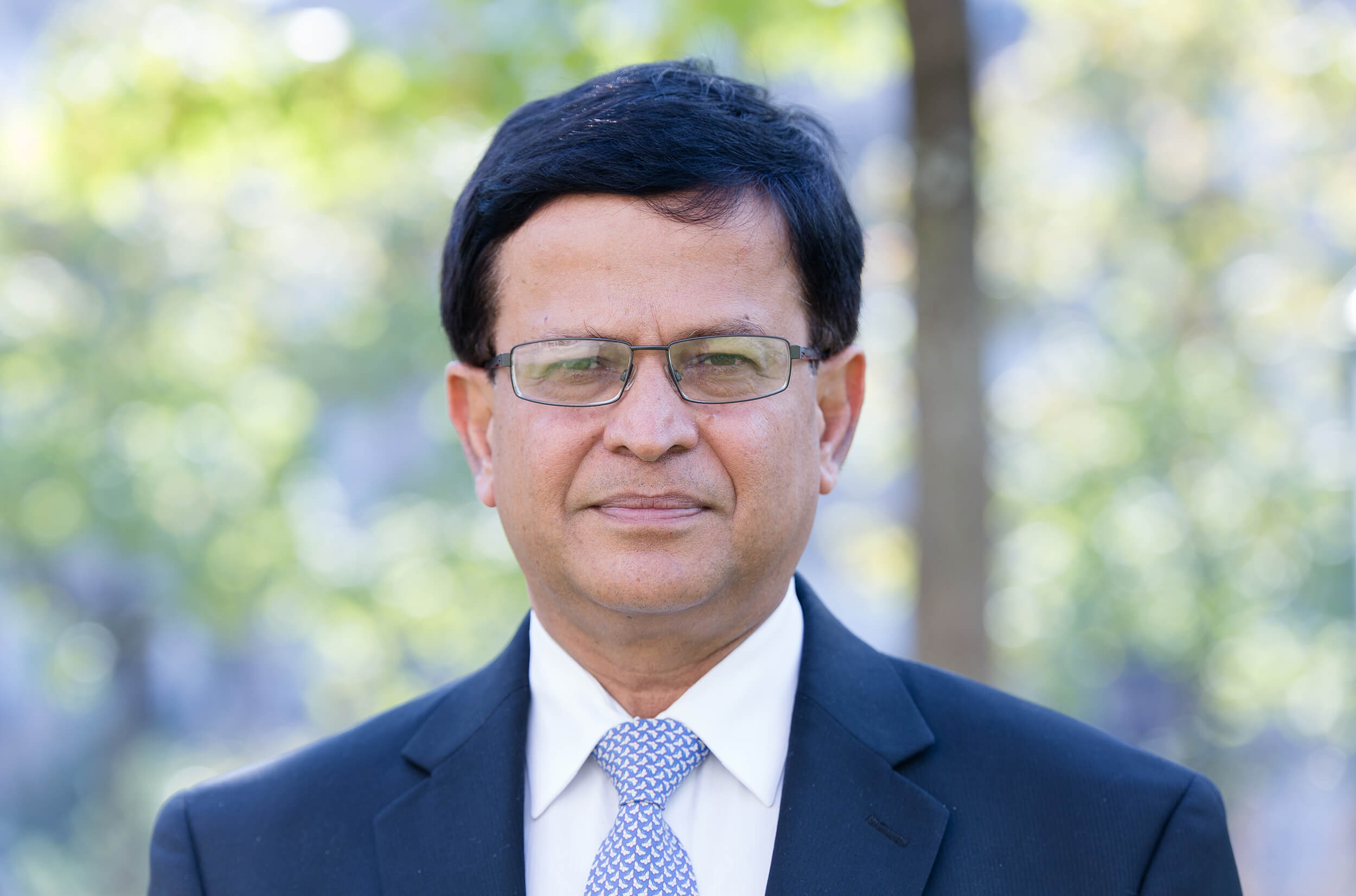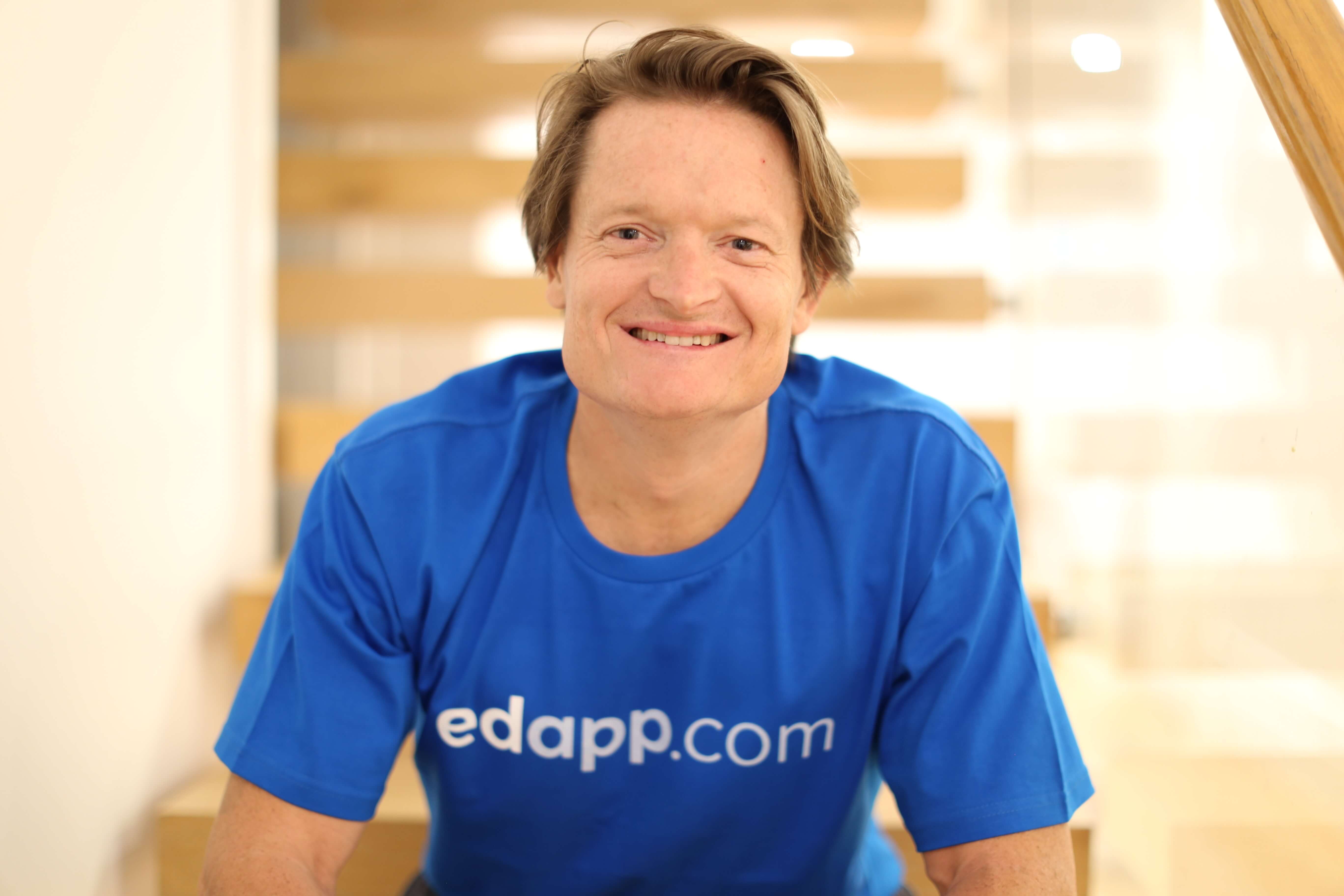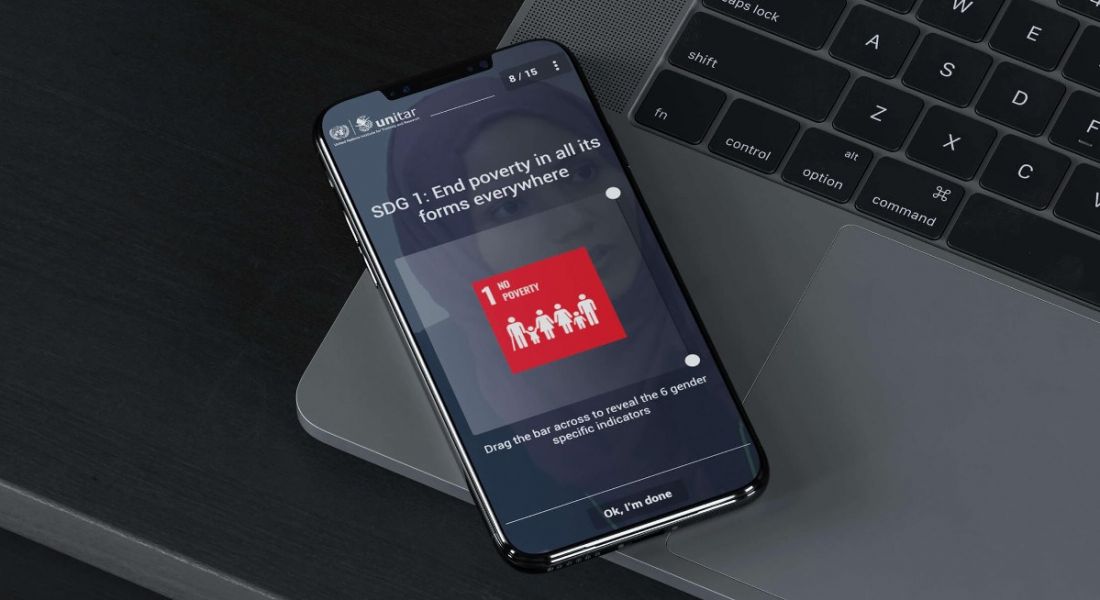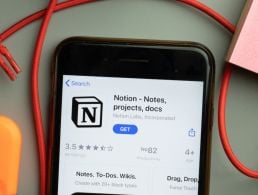UNITAR’s Nikhil Seth and EdApp’s Darren Winterford discuss using smartphone technology to help people in developed and developing countries build their skills.
With the recent global transition to remote working, upskilling is attracting plenty of attention. Many have begun to see learning and development as a necessity if they are to adapt or progress in their career after Covid-19, and are having to rely on technology to help as physical-distancing restrictions continue around the world.
For others, using tech for learning and development is nothing new. The team behind EdApp has been working to bring educational content to individuals and workplaces across the world for several years, developing a mobile-first platform for training using microlearning and gamification. Its app has been used by global companies such as Shell, Sodexo, Amgen and more.
At the end of 2019, it joined forces with the United Nations Institute for Training and Research (UNITAR) to launch the Educate All initiative, which is looking to provide free educational training for people around the world. I spoke to two of the people instrumental in developing Educate All, UNITAR executive director Nikhil Seth and EdApp CEO Darren Winterford, to learn more.
Since beginning his work with the UN in 1990, Seth has been working towards sustainable goals for developing countries around the world. “The distressed countries are almost half the membership of the UN, and reaching the people there who can create change is quite a challenge,” he said. “We need to reach and train people not in the tens of thousands, but in the millions.”
This, he explained, is where technology comes to the fore and is one of the main reasons for UNITAR’s partnership with EdApp.

Nikhil Seth of UNITAR. Image: EdApp
From Winterford’s perspective, UNITAR’s engagement with the tool “just as a regular customer” in such places as Sudan, the Middle East and the Horn of Africa is what opened his eyes to EdApp’s potential for helping people in developing countries.
This raised a question for the company: how could Winterford and his team take their technology tool and apply it to global challenges?
Gaps in corporate learning
When EdApp was founded in 2015, the goal was to try and solve some of the issues apparent in workplace training and development. “We founded the platform when we saw a large gap in corporate learning,” Winterford explained.
“You’re probably aware that corporate learning is very much desktop-based and there’s sort of a lack of engagement with workplace learning, frankly.
“And we tell a little story about ‘the Flintstones at work and the Jetsons at home’. Employees are on Instagram and Facebook Messenger and all these wonderful programmes, and then they walk back into work and they’re on some clunky platform during the workday.”
This method of teaching, Winterford said, is no longer relevant for most workers. “If I have any advice, it’s to look at the user behaviour of your employees,” he said. “You’ll find that the smartphone is now the number-one way they consume digital content.”

Darren Winterford. Image: EdApp
This mobile-first approach was something that was relevant to the company’s partnership with UNITAR. Winterford described the smartphone as “the perfect mechanism to educate, even in the developing world”, where mobile access has surged in recent years.
“Today, people want information in bite-sized chunks,” Seth added. “So how do you reduce knowledge and learning into more manageable bits?
“We used to learn, in my generation, by reading a lot of books and listening to long, boring lectures. But now everybody wants to have this information with them readily available. Easy to access. Easy to digest and reliable. And easy to begin.
“But you know, the trend in digital learning hasn’t started with the Covid-19 crisis. There was already a trend towards digital learning. The crisis, of course, has accelerated this tremendously. Yet in most parts of the world, I think that the application of the smartphone as a learning tool is underappreciated.”
A tool for developed and developing countries
That underappreciation applies in both developed and developing parts of the world, Winterford added.
“I get this amazing insight into what better learning looks like, and while that’s fantastic for the corporate environment, what we knew was that we would like to also use it to help those furthest behind or those being left behind,” he said. “Whether that be someone who has been displaced or lost their job, or those people not in developed nations that might not have had a job in the first place.
“We started doing some work in the Dominican Republic and Haiti with some organisations that were discovering our tool and asking about not-for-profit discounts.
“And it wasn’t until we had some of those discussions that we began to realise we had people projecting our app onto the walls of villages in Haiti, teaching them how to learn business English or teaching them the role of a matriarch in rebuilding a village. Amazing coursework that UNITAR put together. It made me realise that we should take a stronger look at this.”
Today, those efforts are ongoing and Seth believes that EdApp can be used for “all kinds of learners”.
“We’ve done some training, for example, with Afghan women and with women from Iraq, where we’ve helped them in learning and developing basic business skills,” he said.
“There is great potential, particularly in reaching communities and the workers in poor hospitals in desolate places where there’s a lack of running water.”
Through the Educate All initiative, UNITAR and EdApp want to bring accessible, free learning to people globally, particularly those who live in “very poor and distressed parts of the world”, Seth said.
Humbled to have the UN Assistant Secretary-General, @NikhilSethUN unveil our partnership #EducateAll on @SkyNews UK. Thrilled to work together to provide free access to education for millions@UNITAR @IanKingSky#microlearning #freelearning #edtechhttps://t.co/qutYxy1uSg
— EdApp (@ThisisEdApp) April 26, 2020
But it’s private-sector input, Winterford added, that will drive the education resources that are needed to provide this type of accessible platform. The Educate All initiative is asking companies and thought leaders to contribute content that can be distilled into mobile courses on workplace culture, entrepreneurship, sustainability practices and more.
“It’s not all about the developing world,” he said. “Here in the developed world, learning about the role of gender is just as relevant, frankly, on the streets of Dublin as it is in Rwanda. And we know that there is some amazing content locked away in these large corporations that have learning and development budgets and access to learning and development professionals and thought leaders.
“And a lot of it isn’t the special sauce of the company. It’s not IP that can’t be shared. And so, our call at the moment in conjunction with UNITAR is to say to companies: ‘Hey, if you want to help those that have been left behind – and some of those are right here in your backyard now – what do you have in your catalogues?’
“We can put together this global library, then deliver it at scale – potentially more efficiently and more broadly than government initiatives. The opportunity is to unlock all of the corporate knowledge, be able to put that into a very accessible device, like the smartphone, make it accessible in terms of format and microlearning, and then go and deliver it.”
EdApp
Available on the Apple and Google Play stores, EdApp integrates authoring, spaced repetition and gamification to deliver microlearning content. At the moment, the app is processing 50,000 lessons every day, Winterford said.
Its partnership with UNITAR has meant that EdApp users can also access the institute’s content library. Given that UNITAR already had a “very clear idea of what they wanted to do”, Winterford said, it was up to EdApp to simply provide them with “the mechanism to deliver it”.
For Seth, EdApp and the Educate All initiative represent one of the most promising approaches to accessible learning for adults. “By twinning our content with this practical platform for reaching people in the millions, we are able to democratise and increase access to free, high-quality adult education for individuals or institutions or small businesses, especially in the developing world,” he said. “But it’s really relevant to everyone, everywhere.”
To develop this resource further, Seth stressed the current call for companies to “chip in” to the content library and contribute to coursework. “An app is only as good as its content library,” he added.




